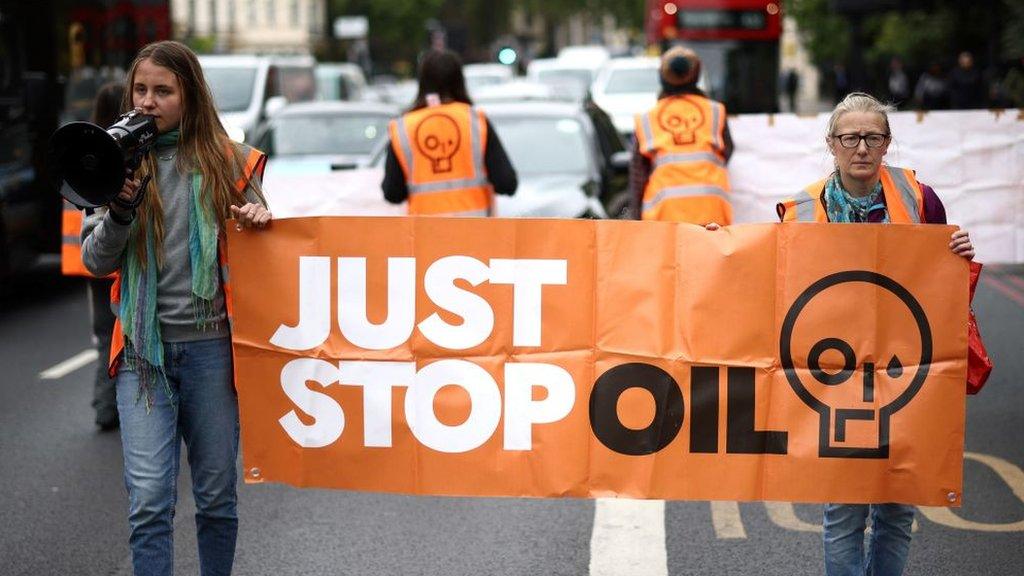F1 British Grand Prix: Facial recognition at Silverstone being used
- Published
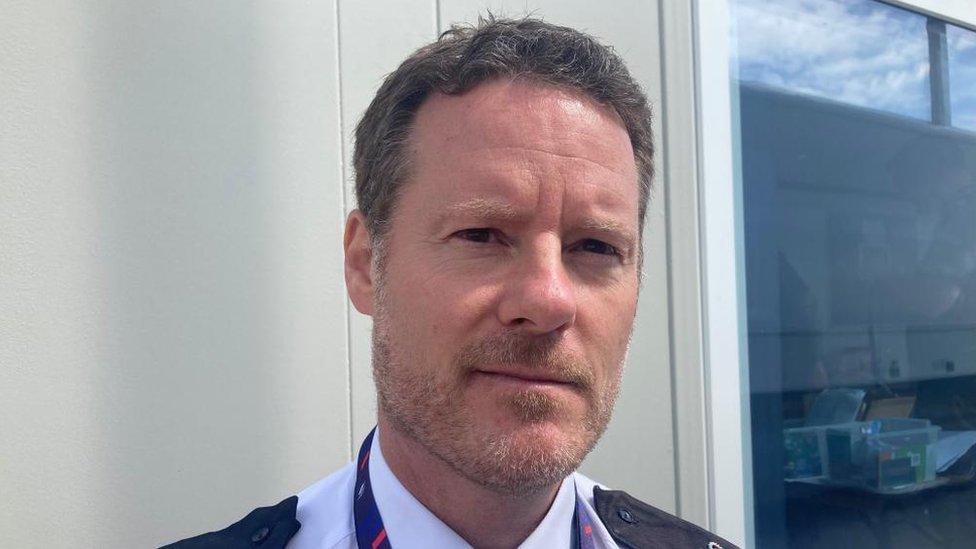
Richard Tompkins said police were prepared to stop disruption and other crime at the event
Facial recognition technology will be used for the first time at the Formula 1 British Grand Prix to try to stop criminal activity.
Northamptonshire Police said it would be used to spot those who pose a "risk of danger to the wider public".
That could include wanted criminals, those involved in serious crime, or "unlawful protest", the force said.
Det Supt Richard Tompkins said officers had "thought long and hard" about the use of the technology.
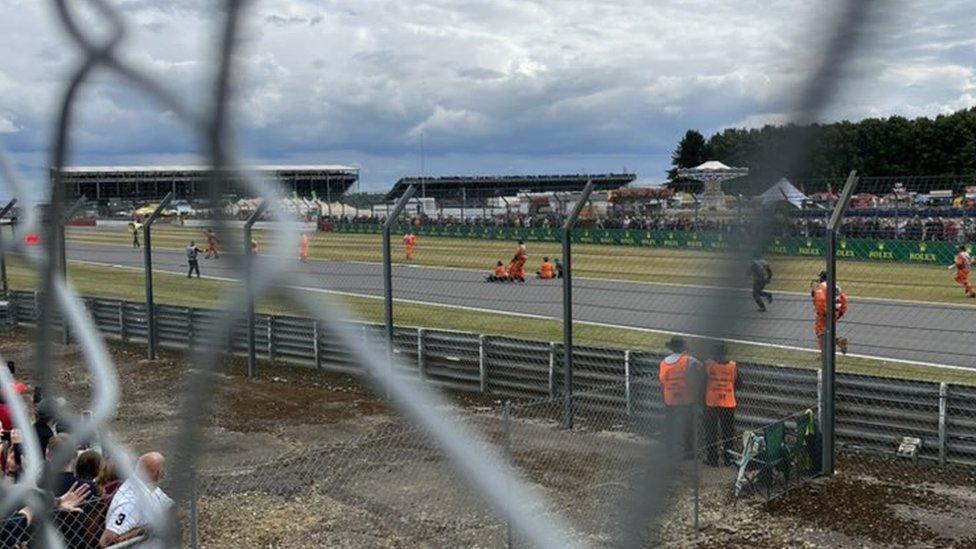
Protesters invaded the Silverstone track at the beginning of the Formula 1 British Grand Prix last year
More than 450,000 people are expected at Silverstone this weekend.
Mr Tompkins said: "This is the first time that we will have used it [facial recognition] in Northamptonshire as a police force, and also the first time we've used it here at the British Grand Prix.
"There is a risk of terrorism, of serious crime and of course unlawful protest, which in itself is illegal.
"We've got signage advising people that we are doing it... but we feel that it is a proportionate response and I'm quite content it's appropriate."

Facial recognition technology
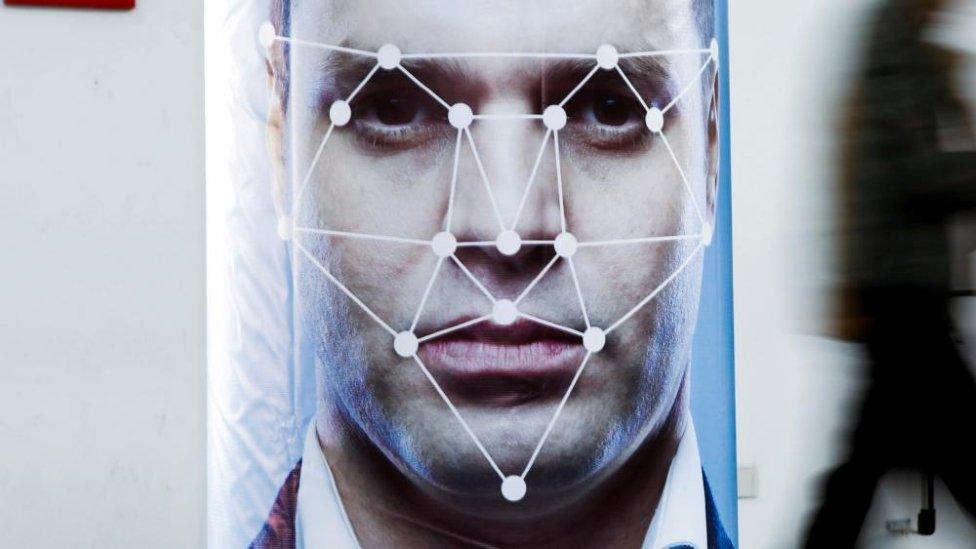
Live facial recognition has been previously used by police forces in London and Wales
A live facial recognition camera works by comparing faces with a "watch list" generated by police.
The watch list could be made up of people who are wanted for crimes or pose a risk of harm to themselves and others, the Northamptonshire force said.
Any images that trigger alerts are deleted immediately after use or within 24 hours, while those that do not trigger alerts are deleted immediately.
The technology was used at the Beyoncé concert in Cardiff in May and during the Coronation, external.
But civil liberties organisation Liberty said the technology should not be used by police forces.

On race day last year protesters got on to the Wellington Straight - the fastest point of the Silverstone track.
Four men and two women were in February, with three of the six given suspended prison terms while three others were given 12-month community orders.
Mr Tompkins, who was at the circuit in 2022, said: "I think we were fortunate that we didn't get some deaths either from [the protesters], from members of the public or marshals, who would have become embroiled in that."
Northamptonshire Police said it would also have plain-clothed detectives and armed officers patrolling the circuit, among other measures to prevent disruption to the race.
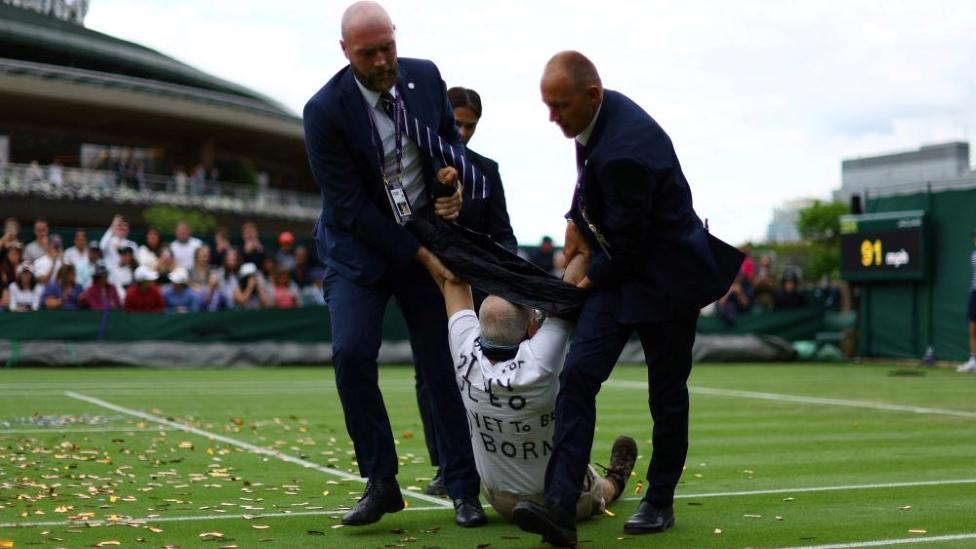
Protesters dropped orange-coloured confetti and jigsaw pieces on to court 18 at Wimbledon
Climate change protesters have recently got on the pitch during an Ashes Test between England and Australia at Lord's and interrupted play twice at Wimbledon.
Followers of Just Stop Oil, which calls for the government to halt all new oil, gas and coal projects, also disrupted the rugby union Premiership final and the World Snooker Championship.
Mr Tompkins said it would be "naïve" to not believe protestors would attempt action at this year's race.
He warned the force would "be taking action and that will ultimately mean we will be looking at arrested individuals and putting them before the courts".

Find BBC News: East of England on Facebook, external and Instagram, external. If you have a story suggestion email eastofenglandnews@bbc.co.uk or get in touch via WhatsApp on 0800 169 1830
Related topics
- Attribution
- Published6 July 2023
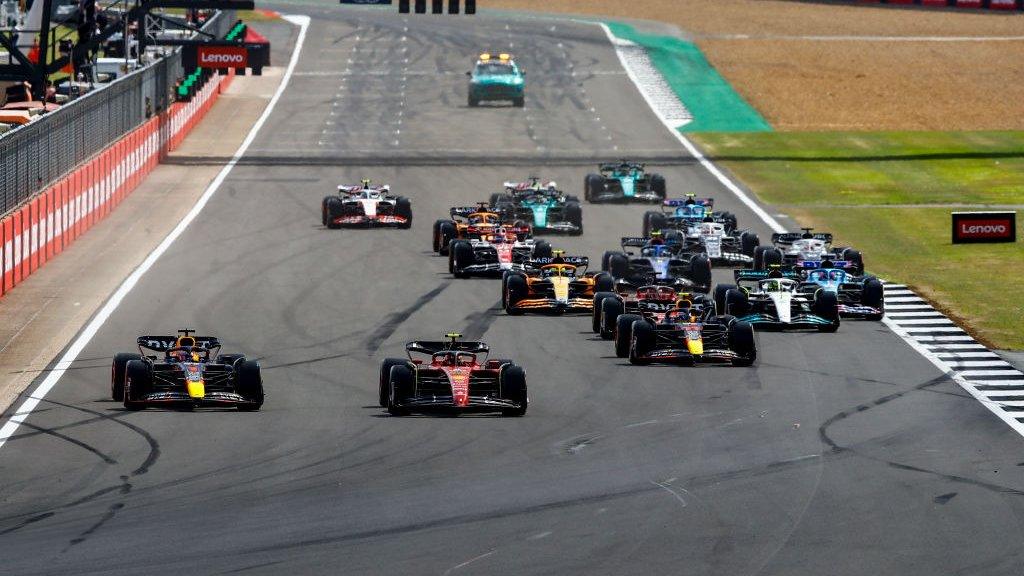
- Attribution
- Published3 July 2023
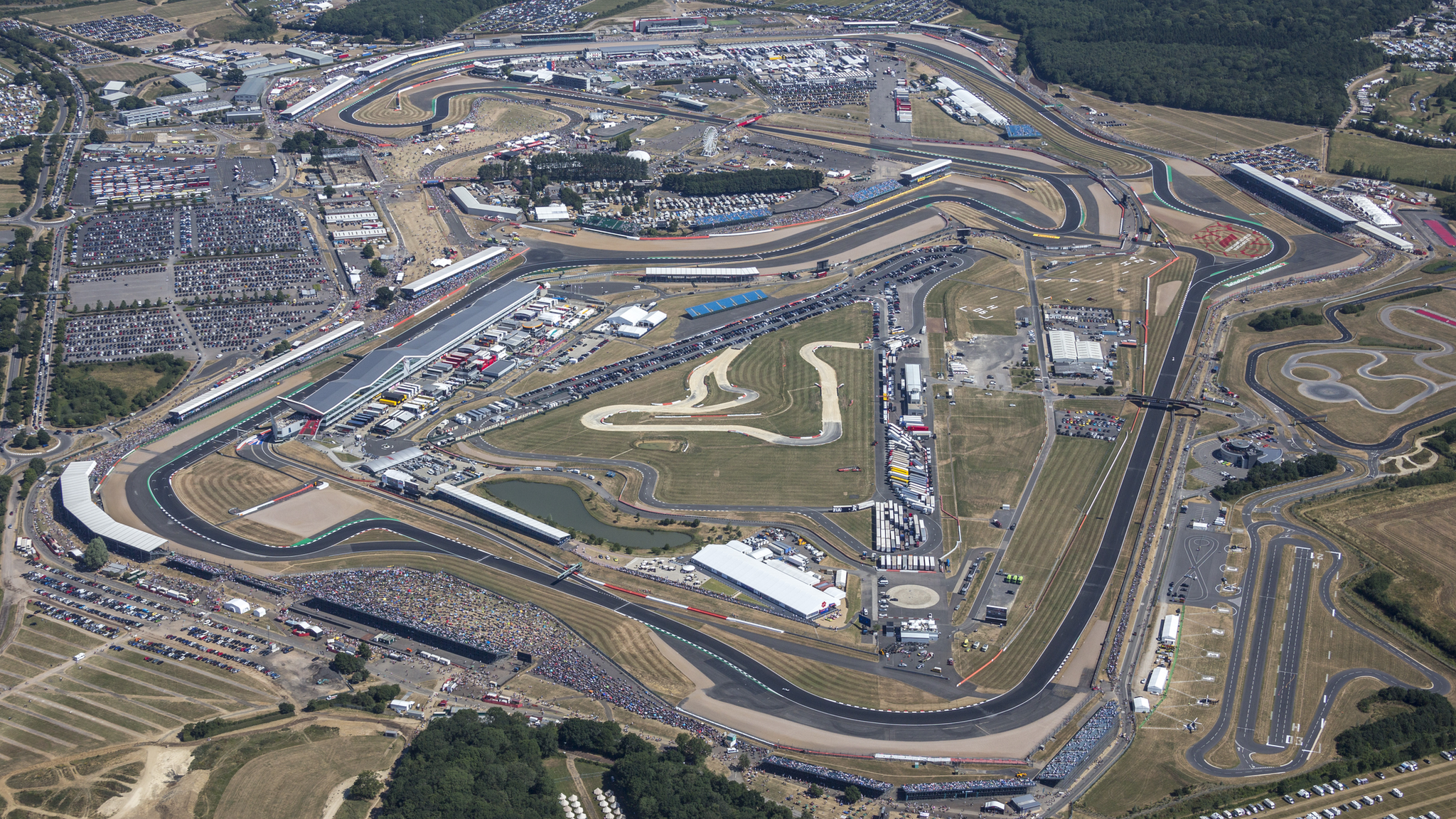
- Published31 March 2023
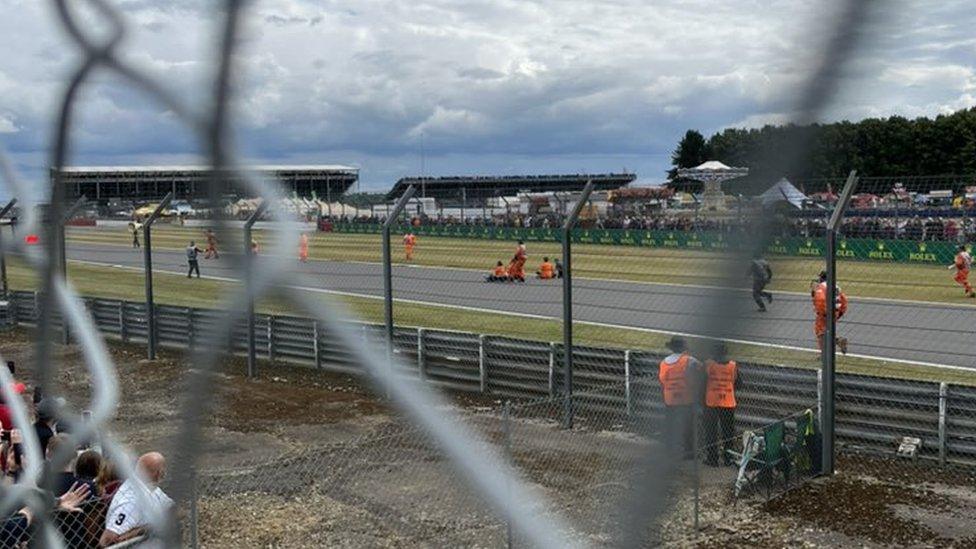
- Attribution
- Published5 July 2023
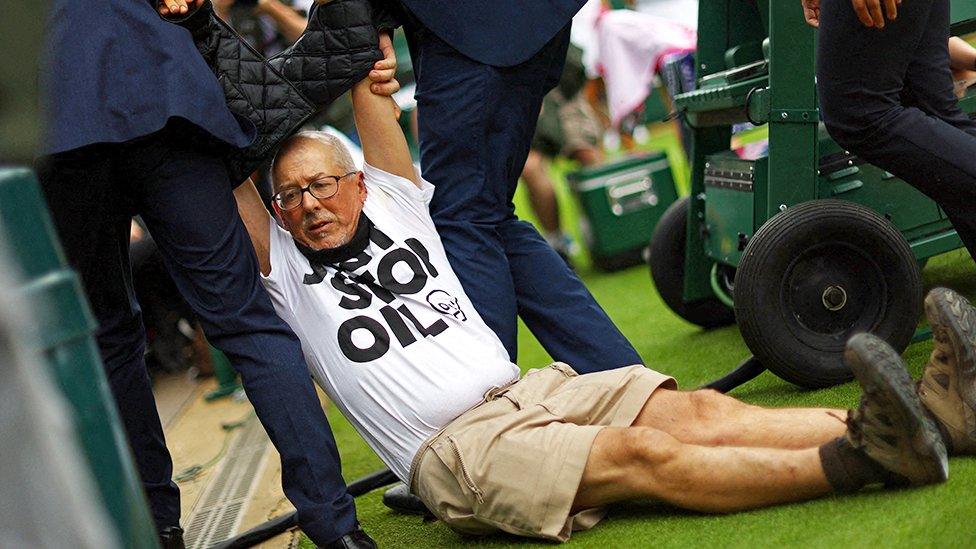
- Published19 June 2024
